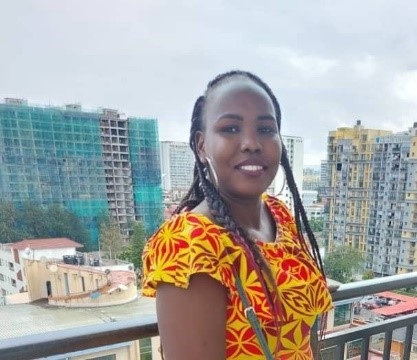By Esther Aurelio Agira
Land grabbing is the act of taking someone’s land in an unlawful manner. A land grabber might be an individual, organization, government institution, or even the private sector.
Land grabbing and corruption are like two sides of the same coin, since land grabbing is always associated with dishonest activities and power abuse for personal benefit or a certain institution. There is no difference between a land grabber and a thief of the land.
Disputes over land ownership are widespread in Central Equatoria State, though the constitution clearly states that land belongs to the community. According to the Transitional Constitution of the Republic of South Sudan, 2011 Part Twelve on land ownership, Article 171, the land system in South Sudan shall consist of three categories: (a) public land; (b) community land; and (c) private land.
Public land shall include, but not be limited to: (a) all land owned, held, or otherwise acquired by any level of government as defined by law; and (b) all land that is not otherwise classified as community or private.
Community land shall include all lands traditionally and historically held or used by local communities or their members. They shall be defined, held, managed, and protected by a person under leasehold tenure in accordance with the law.
Private land shall include registered land held by any investment land acquired under lease from the government or community for purposes of social and economic development in accordance with the law and any other land designated as private land by law.
According to the constitution, community land shall include all lands traditionally and historically held or used by local communities or their members. They shall be defined, held, managed, and protected by law.
Though the constitution clearly stipulates the right procedures for one to own land in the country, this section of law falls on the deaf ears of the crooks. The crooks are mostly in charge when it comes to land distribution and management. If one stays in Juba for less than a month, he or she would have come across the issues of the land dispute and land grabbing. When it comes to the issue of land grabbing, certain institutions have failed to do their part as demanded by the constitution and the job description.
Land grabbers are neither ashamed of themselves for grabbing communities’ land nor do they respect native communities. For instance, some non-native communities in Central Equatoria State organized themselves, headed by chiefs, to distribute and sell out community land that belonged to the Bari community, which is totally against the constitution.
One should be careful when purchasing land in Central Equatoria State. For instance, some residential areas, like Hai Referendum in Juba County and Jebel Dinka in Luri County, have their own systems of dealing with land disputes, which in most cases do not align with the constitution.
Many people have been complaining of fraud, which has become a new fashion in Juba City. To begin with, some non-native chiefs claim to be in charge of distributing land to the people. Those non-native chiefs selling and distributing lands that belong to the indigenous communities, which is completely against the Transitional Constitution of the Republic of South Sudan, 2011 Part Twelve on land ownership,
Fraud and dispute over land ownership did not stop with non-native chiefs alone; they also involved native chiefs as well as indigenous people. Native chiefs, together with their people, sometimes sell lands to more than one person, and later they disappear, leaving the three buyers of the same land in dispute. The bitter truth is that the non-native’s motivating factor toward land grabbing is to generate more money.
As an act, land grabbing long ago was at an infant stage, whereby some of the people who were privileged grabbed land from plots from poor people. As time goes on, he also became greedy for more, so he started to grab football fields where the children and youth often played on their leisure time. However, those youth did not keep quiet; they tried to resist the land grabbing. Unfortunately, the youth were not as strong as the land grabbing, so they have been defeated. Even some of those youths were engaged in bad activities such as niggers groups, drug abuse, and alcohol abuse.
To prevent land grabbing, the land rights of the indigenous people must be respected and protected, and disputes over land ownership should be taken seriously and dealt with in a constructive, inclusive, and peaceful manner. Governments are supposed to protect their citizens, and indigenous and non-indigenous individuals should respect and obey the law and SSC.
Indigenous people should be honest when selling a piece of land to a client and not buy one piece of land for more than two or three people under any circumstances. However, most of the cases of land disputes are caused by the native people. Native people would sell the land to more than two people, and then he or she would disappear and leave the three buyers in conflict with one another. Therefore, the conflict between three people would lead to communal conflict and result in tribalism. Nevertheless, the circle of hearts would continue.
There are a number of solutions to prevent land conflict, such as the establishment of effective land use planning. Land use planning is a process that involves identifying and allocating land for different uses, such as agriculture, housing, and conservation. This can help prevent grabbing by ensuring that land is used for its intended purpose and that there is conflict in land use.
However, in the case of South Sudan and particularly Juba City, a durable solution to land grabbing is already in our hands, but the people are too blind to see the constitution.




